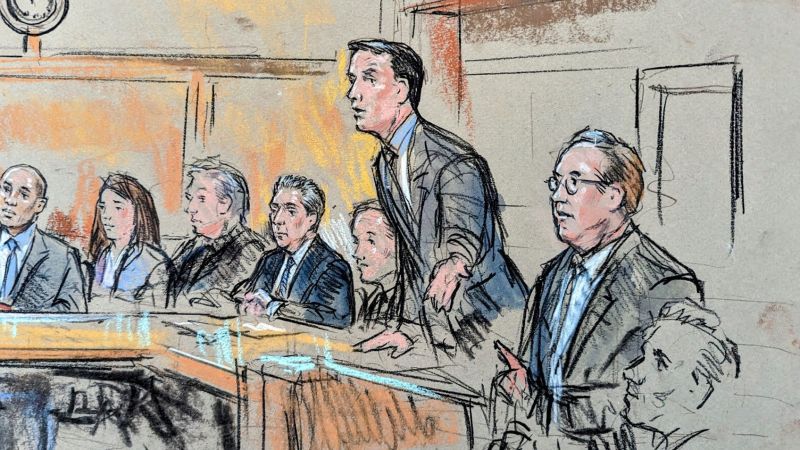In a significant development within the ongoing legal landscape surrounding former President Donald Trump, a prominent federal prosecutor is poised to provide private testimony to the House Judiciary Committee in the coming days. This matter revolves around the classified documents case that has not only captured public interest but has also invoked responses from various key political players. According to a trustworthy source familiar with the proceedings, the mental gymnastics and strategic maneuvers behind Trump’s legal team continue to unfold, shedding light on the intricate relationship between law and politics.
The highly anticipated deposition of Jay Bratt, a former national security prosecutor who played a crucial role in the indictment against Trump, is scheduled for May 14. This information was initially reported by The Guardian, which highlights the implications of Bratt’s insights given his direct involvement in the case. His role has been pivotal as he oversaw the inquiry into Trump’s gathering of classified national defense documents after leaving the White House. Furthermore, inquiries into Trump’s resistance to the government’s attempts to recover these documents are consequential, as they highlight both the legal and ethical considerations involved in this case.
Interestingly, even though the case ultimately did not progress to a conviction, sources previously conveyed to CNN that Trump’s legal representatives were displeased with Bratt’s handling of the situation, feeling he did not extend the level of respect due to a former president. This sentiment underscores the often fraught interactions between legal proceedings and political stature, especially concerning sensitive matters of national security and executive power. Simultaneously, as various factions within the Republican Party examine the Department of Justice’s inquiries into Trump, the GOP-controlled House Judiciary Committee has explicitly sought Bratt’s testimony, indicating the committee’s commitment to dissecting the legality and motivation behind the justice department’s actions.
With the investigations into Trump now officially complete, he has made a notable return to political life, which has emboldened Congressional Republicans in their efforts. The collaboration among Republican members of Congress to gather documents and testimonies appears to be yielding results as they persist in their quest for transparency and accountability regarding the actions of federal institutions. This new dynamic adds complexities to the narrative, with the political aspirations of some legislators seemingly intertwined with ongoing legal battles.
In addition to the proceedings against Trump, the House Judiciary Committee has recently broadened its scope to include inquiries into a separate federal tax investigation involving Hunter Biden, the son of President Joe Biden. A prosecutor from the Department of Justice Tax Division, who has been pursued by the committee for months, was interviewed concerning the tax-related charges. Notably, Hunter Biden eventually pleaded guilty in this ongoing matter, drawing further attention to the juxtaposition of high-profile cases involving prominent political figures, thereby creating an intricate tapestry of allegations and defenses within the current political milieu.
The reporting on these challenges is collaborative, with contributions from notable CNN journalists, including Kaanita Iyer, Hannah Rabinowitz, Evan Perez, Paula Reid, and Katelyn Polantz. These reporters have meticulously covered the evolving storylines, reflecting on not just the implications for the individuals involved, but also the broader questions about accountability, power, and the law. As these events develop, the intersection of legal proceedings and political discourse continues to be a critical area of focus, affecting public perception and shaping the landscape of American politics. The implications of Bratt’s testimony and its reception by the Judiciary Committee may have significant repercussions for both Trump’s political future and the ongoing scrutiny of the Biden administration.



